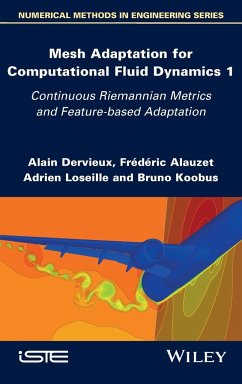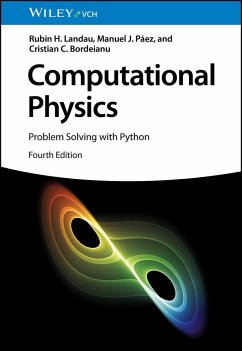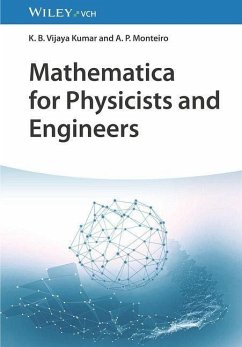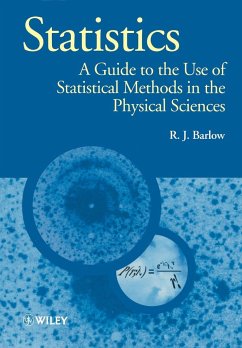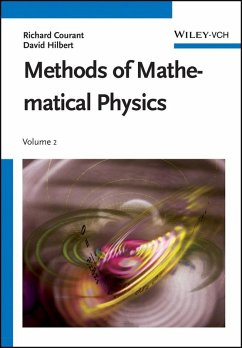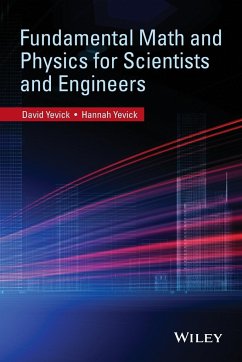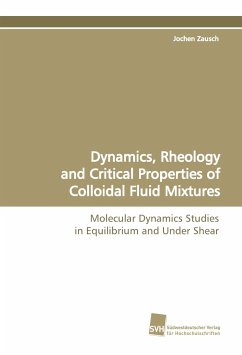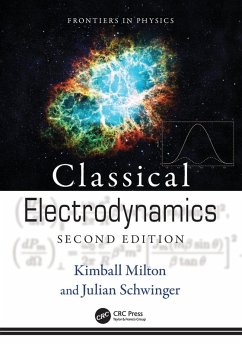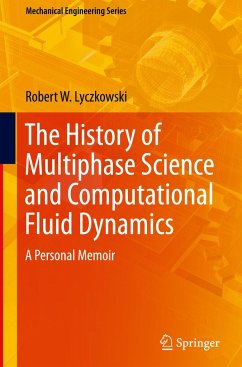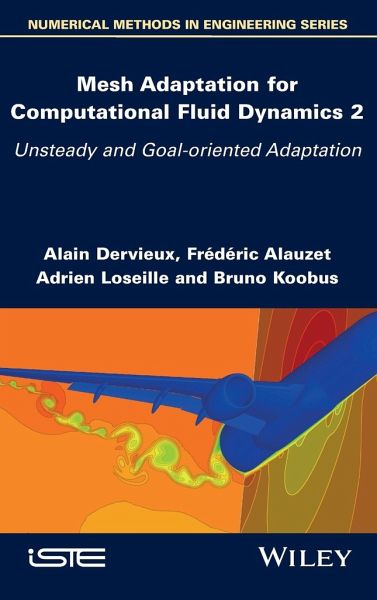
Mesh Adaptation for Computational Fluid Dynamics, Volume 2
Unsteady and Goal-Oriented Adaptation
Versandkostenfrei!
Versandfertig in über 4 Wochen
145,99 €
inkl. MwSt.
Weitere Ausgaben:

PAYBACK Punkte
73 °P sammeln!
Simulation technology, and computational fluid dynamics (CFD) in particular, is essential in the search for solutions to the modern challenges faced by humanity. Revolutions in CFD over the last decade include the use of unstructured meshes, permitting the modeling of any 3D geometry. New frontiers point to mesh adaptation, allowing not only seamless meshing (for the engineer) but also simulation certification for safer products and risk prediction.Mesh Adaptation for Computational Dynamics 2 is the second of two volumes and introduces topics including optimal control formulation, minimizing a...
Simulation technology, and computational fluid dynamics (CFD) in particular, is essential in the search for solutions to the modern challenges faced by humanity. Revolutions in CFD over the last decade include the use of unstructured meshes, permitting the modeling of any 3D geometry. New frontiers point to mesh adaptation, allowing not only seamless meshing (for the engineer) but also simulation certification for safer products and risk prediction.
Mesh Adaptation for Computational Dynamics 2 is the second of two volumes and introduces topics including optimal control formulation, minimizing a goal function, and extending the steady algorithm to unsteady physics. Also covered are multi-rate strategies, steady inviscid flows in aeronautics and an extension to viscous flows.
This book will be useful to anybody interested in mesh adaptation pertaining to CFD, especially researchers, teachers and students.
Mesh Adaptation for Computational Dynamics 2 is the second of two volumes and introduces topics including optimal control formulation, minimizing a goal function, and extending the steady algorithm to unsteady physics. Also covered are multi-rate strategies, steady inviscid flows in aeronautics and an extension to viscous flows.
This book will be useful to anybody interested in mesh adaptation pertaining to CFD, especially researchers, teachers and students.




